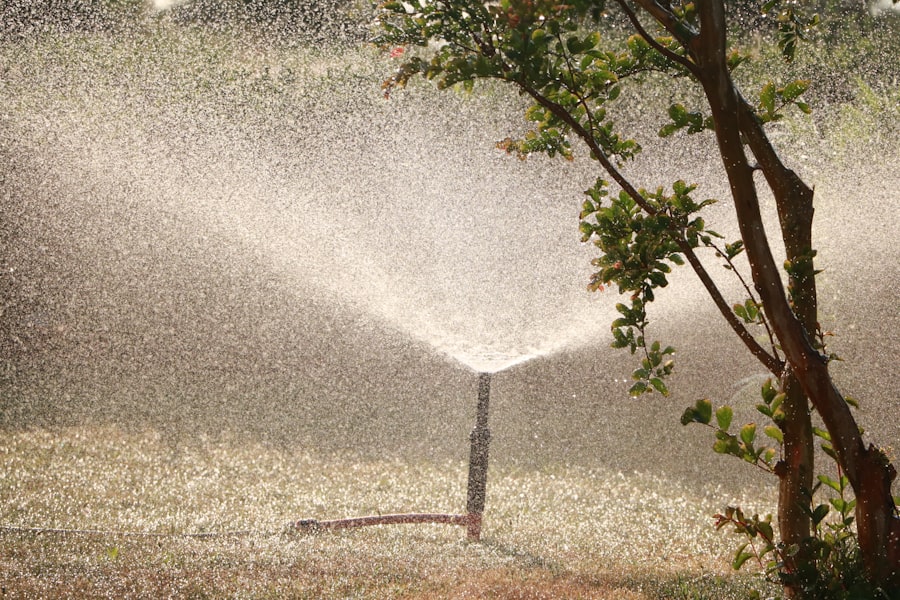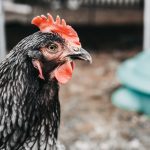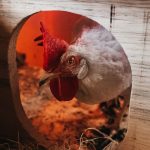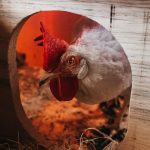Opossums are nocturnal marsupials that are primarily active during nighttime hours. These omnivorous animals consume a diverse diet, including fruits, vegetables, insects, small vertebrates, and human food waste. Known for their scavenging behavior, opossums often search for sustenance in garbage receptacles and compost areas.
Their excellent climbing abilities allow them to easily access elevated food sources by scaling fences and trees. When threatened, opossums exhibit a unique defense mechanism known as thanatosis, or “playing dead,” which can complicate human-opossum interactions in confined spaces. These animals are territorial and tend to revisit areas where they have previously found food or shelter, making it challenging to prevent their return once they have established a presence on a property.
Opossums can be potential vectors for various diseases, including tuberculosis, leptospirosis, and spotted fever. As a result, it is advisable to implement measures to discourage opossum presence near human habitations to safeguard the health of residents and domestic animals.
Table of Contents
- 1 Securing the Chicken Coop
- 2 Using Motion-Activated Lights or Alarms
- 3 Removing Attractants
- 4 Installing Fencing
- 5 Using Natural Repellents
- 6 Seeking Professional Help
- 7 FAQs
- 7.1 What are possums and why do they eat chickens?
- 7.2 How can I keep possums away from my chickens?
- 7.3 Are there any natural deterrents that can keep possums away from my chickens?
- 7.4 Is it legal to trap or kill possums to protect my chickens?
- 7.5 What should I do if a possum has already attacked my chickens?
Key Takeaways
- Possums are nocturnal and are attracted to chicken coops for food and shelter.
- Secure the chicken coop by using heavy-duty wire mesh and locking doors to prevent possums from entering.
- Motion-activated lights or alarms can startle possums and deter them from approaching the chicken coop.
- Remove attractants such as food scraps and water sources from the vicinity of the coop to discourage possums from lingering.
- Install fencing around the chicken coop to create a physical barrier and prevent possums from gaining access.
- Natural repellents such as predator urine or ammonia can be used to deter possums from approaching the coop.
- Seek professional help if possum infestation persists despite taking preventive measures.
Securing the Chicken Coop
Sturdy Materials and Sealing Gaps
One of the most effective ways to keep possums away from your chickens is to secure the chicken coop. This can be done by ensuring that the coop is made of sturdy materials that possums cannot easily break into. It’s important to check for any holes or gaps in the coop that possums could squeeze through and make sure they are sealed off.
Locking the Coop Door and Securing Food
Additionally, adding a lock or latch to the coop door can help prevent possums from gaining access. Another important step in securing the chicken coop is to make sure that there are no food sources easily accessible to possums. This means keeping chicken feed in secure containers that possums cannot open or access.
Cleaning Up Attractants and Creating a Safe Environment
It’s also important to clean up any spilled feed or food scraps around the coop that could attract possums. Securing the chicken coop is crucial in protecting your chickens from possums and other predators. By taking these steps, you can create a safe and secure environment for your chickens to thrive.
Using Motion-Activated Lights or Alarms

Motion-activated lights or alarms can be an effective deterrent for possums. These devices are triggered by movement and can startle possums, causing them to flee the area. By installing motion-activated lights or alarms around your property, you can create an environment that is less inviting to possums.
Lights can be particularly effective at deterring possums, as they are nocturnal animals and are sensitive to bright lights. By installing motion-activated lights around your chicken coop or yard, you can make it less appealing for possums to visit during the night. Alarms can also be effective at scaring off possums.
These devices emit a loud noise when triggered, which can startle possums and cause them to leave the area. By using motion-activated alarms, you can create a deterrent that will discourage possums from coming near your property. Using motion-activated lights or alarms can be an effective way to keep possums away from your chickens and property.
These devices provide a non-lethal and humane way to deter possums and protect your property.
Removing Attractants
Possums are attracted to areas with readily available food sources, so removing attractants from your property can help keep them away. This means making sure that garbage cans are securely closed and not easily accessible to possums. It’s also important to clean up any spilled food or birdseed around the yard that could attract possums.
Additionally, it’s important to secure any compost bins or garden areas where possums may find food. This can be done by using secure lids on compost bins and fencing off garden areas to prevent possums from gaining access. Removing attractants from your property is an important step in keeping possums away from your chickens and yard.
By eliminating food sources that may attract possums, you can create a less inviting environment for them.
Installing Fencing
Installing fencing around your property can be an effective way to keep possums away from your chickens and yard. Fencing can create a physical barrier that prevents possums from gaining access to your property. It’s important to use sturdy materials and ensure that the fencing is tall enough to prevent possums from climbing over.
Additionally, it’s important to bury the bottom of the fence or use an apron of wire mesh to prevent possums from digging underneath. This will help ensure that possums cannot easily bypass the fence and gain access to your property. Fencing can be an effective long-term solution for keeping possums away from your chickens and yard.
By creating a physical barrier, you can prevent possums from gaining access to your property and protect your chickens from potential harm.
Using Natural Repellents

Ammonia: A Strong Deterrent
One effective natural repellent to keep possums away from your property is ammonia. Soak rags in ammonia and place them around the perimeter of your property. The pungent smell of ammonia will deter possums from venturing near your chickens or yard.
Predator Urine: A Natural Deterrent
Another natural repellent is predator urine, which can be purchased at garden centers or online. The scent of predator urine creates a natural deterrent for possums, as they perceive it as a sign of danger in the area.
Repellent Plants: A Natural Barrier
Certain plants, such as marigolds, garlic, and daffodils, are known for their ability to repel pests, including possums. Planting these around your property can act as a natural repellent, keeping possums away from your chickens and yard.
By incorporating these natural deterrents into your property, you can create a less inviting environment for possums, keeping them at bay without using harmful chemicals.
Seeking Professional Help
If you have tried various methods to keep possums away from your chickens and yard without success, it may be time to seek professional help. Pest control professionals have the knowledge and experience to effectively deal with possum infestations and can provide solutions tailored to your specific situation. Professional pest control services may include trapping and relocating possums away from your property, as well as implementing long-term prevention methods to keep them from returning.
Pest control professionals can also provide advice on how to make your property less inviting to possums and other pests. Seeking professional help is important if you are dealing with a persistent possum problem that is putting your chickens at risk. By enlisting the help of pest control professionals, you can ensure that the issue is addressed effectively and that your chickens are protected from potential harm.
In conclusion, understanding possum behavior is crucial in finding effective ways to keep them away from your property. Securing the chicken coop, using motion-activated lights or alarms, removing attractants, installing fencing, using natural repellents, and seeking professional help are all important steps in keeping possums away from your chickens and yard. By taking these measures, you can create a safe and secure environment for your chickens to thrive without the threat of possum infestations.
If you’re looking for ways to keep possums from eating your chickens, you may also be interested in learning about what vegetables quails eat. Check out this article on PoultryWizard to discover the best vegetables to feed your quails and keep them healthy. And while you’re at it, you can also explore tips on breeding turkeys during mating season in this informative article on PoultryWizard.
FAQs
What are possums and why do they eat chickens?
Possums are nocturnal marsupials that are known to eat a variety of foods, including small animals like chickens. They are attracted to the easy prey and may see chickens as a source of food.
How can I keep possums away from my chickens?
There are several methods to keep possums away from your chickens, including securing the chicken coop with strong wire mesh, installing motion-activated lights or sprinklers, and using natural deterrents like predator urine or ammonia-soaked rags.
Are there any natural deterrents that can keep possums away from my chickens?
Yes, natural deterrents such as predator urine, ammonia-soaked rags, and even planting strong-smelling plants like lavender or mint around the coop can help keep possums away from your chickens.
Is it legal to trap or kill possums to protect my chickens?
Laws regarding the trapping or killing of possums vary by location, so it’s important to check with local wildlife authorities before taking any action. In some areas, it may be legal to trap and relocate possums, while in others it may require a permit or be prohibited altogether.
What should I do if a possum has already attacked my chickens?
If a possum has already attacked your chickens, it’s important to assess the damage and seek veterinary care for any injured birds. You should also take steps to secure the chicken coop and implement deterrents to prevent future attacks.
Meet Walter, the feathered-friend fanatic of Florida! Nestled in the sunshine state, Walter struts through life with his feathered companions, clucking his way to happiness. With a coop that’s fancier than a five-star hotel, he’s the Don Juan of the chicken world. When he’s not teaching his hens to do the cha-cha, you’ll find him in a heated debate with his prized rooster, Sir Clucks-a-Lot. Walter’s poultry passion is no yolk; he’s the sunny-side-up guy you never knew you needed in your flock of friends!







